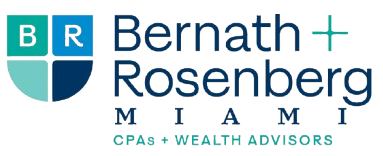By Ted Stricker, CFP®
If you embrace the idea of charitable giving, a donor-advised fund (DAF) might be considered a means of both implementing your charitable intentions and, yes, saving on taxes each year. As tax planning is a core tenet of a solid financial plan, it is worthwhile to investigate how a DAF could fit into your own unique financial and tax situation.
What Is a Donor-Advised Fund?
A donor-advised fund (DAF) is a special charitable investment account established by a donor at a 501(c)(3) charitable institution. The donor may be an individual, a family, or an organization. The donor or others may contribute a large variety of financial assets to the account. These not only include cash, but also shares of publicly traded common stock and mutual fund shares.
Many DAF account custodians will also accept more complex assets, such as restricted stock, shares of privately held C-corp or S-corp companies, hedge fund or private equity interests, and even cryptocurrency. The value of contributions are tax-deductible in the year made and contributions can be periodic or in discretionary lump-sum amounts. If you establish a DAF, be sure to understand any contribution minimums that may be imposed by the custodian organization.
The DAF can not only be established directly with a qualified 501(c)(3) charitable organization (such as a foundation) but also at normal investment brokerage companies who have established a charitable arm of the company. The unique feature of DAFs (as opposed to private foundations) is that there is no requirement to disperse an annual amount to charitable causes; you choose when and to whom distributions are made at your discretion. A DAF may also be a simpler and less expensive alternative to the private foundation or family fund.
What Are the Tax Benefits?
Each charitable contribution you make is eligible for an immediate tax deduction, just as if you made a donation to your local food bank or social service organization. With a DAF, though, you have the potential for additional tax benefits.
- If you donate cash, you are generally eligible for an income tax deduction up to 60% of your adjusted gross income (AGI).
- Contributions of long-term appreciated assets (like common stock or mutual fund shares) provide two potential tax benefits. Instead of selling these investments and donating the proceeds, it could be advantageous to transfer these assets directly to the DAF. The benefits are:
- The full value of the donated asset could be eligible for an income tax deduction, up to 30% of the donor’s adjusted gross income.
- As long as the asset was previously held for longer than one year, any potential capital gains tax on the appreciation would be eliminated.
Advantages and Disadvantages
The advantages of a donor-advised fund account include:
- The mentioned tax benefits: immediate income tax deductions, eliminating capital gains taxes on long-term appreciation of donated assets and offsetting taxable RMD income.
- Tax-free growth of the account: All investment gains, dividends, and interest in the DAF account are tax-free.
- Control of the account investments: When you donate to a foundation, you lose control of how the donation is invested. In a DAF, you control (or have control over the management) of the investments within the account.
- Ability to contribute non-cash assets: Donor-advised funds can accept non-cash assets versus traditional charities who may not be able to accept anything other than cash.
Disadvantages to the DAF might include:
- There may be a restriction or final determination by the custodian as to recipients of DAF distributions. Be sure to inquire with the sponsor custodian about this aspect before establishing your account.
- The sponsor and/or investment advisor may charge fees for managing and services to the DAF account. Again, ask for a full disclosure of fees and expenses prior to opening the account.
- Donations are irrevocable. Once you’ve made the contribution, it is irreversible and cannot be returned to you for any reason.
Questions About DAF Accounts? Contact Us!
If a donor-advised fund seems appealing and you’d like to explore how it can fit within your charitable intentions, we’re here to help! By coordinating your philanthropy with your overall financial planning and long-term goals, our assistance could be beneficial to your financial future.
With our Certified Public Accountants and CERTIFIED FINANCIAL PLANNER® professionals, Bernath + Rosenberg stays current with the latest in tax laws and planning strategies to help you pursue a rewarding and comfortable retirement, according to your unique and special objectives.
To get started and make the most of your hard work, schedule a complimentary meeting by calling (212) 221-1140 or emailing tstricker@brwealth.com.
About Ted
Ted Stricker is a partner and financial advisor at Bernath + Rosenberg, a full-service accounting, tax, and wealth management firm with offices in Monsey, NY, Lakewood, NJ, Cedarhurst, NY, and Miami Beach, FL. The firm demonstrates a personalized approach to custom-tailored solutions and an unwavering commitment to client service. With over 26 years of experience in the financial services industry, Ted manages the firm’s wealth management team, and specializes in designing financial plans for business owners and affluent families. Since joining the team in 2015, he provides practical and sound advice, combining innovative approaches and solutions that reflect clients’ personality, lifestyle, and goals.

